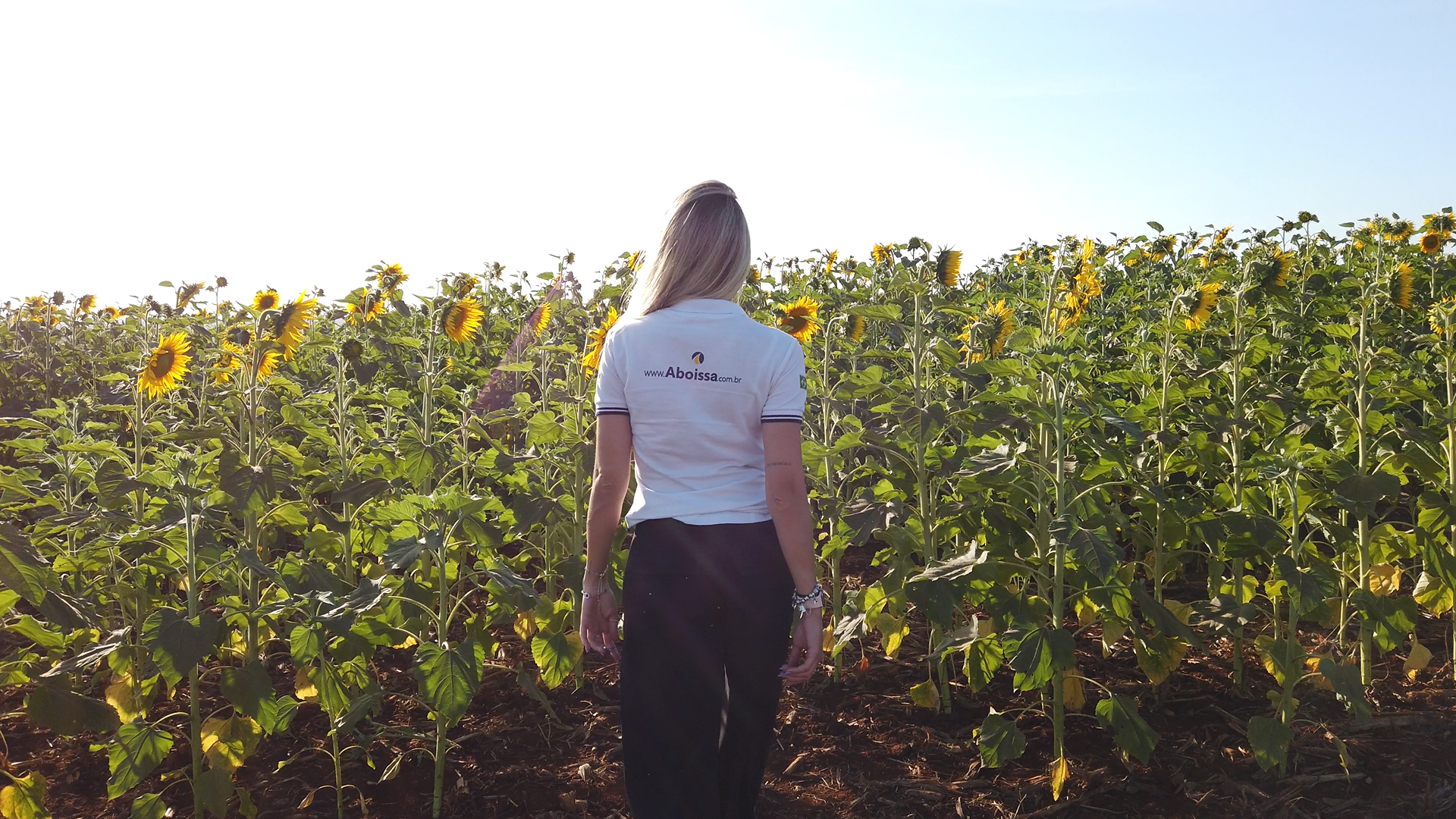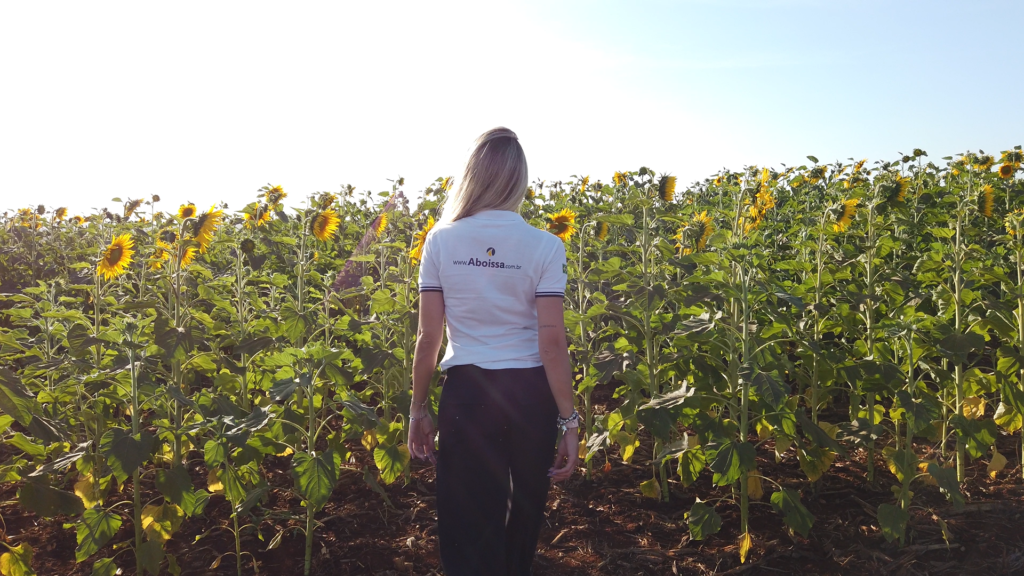
Image: Aboissa Commodity Brokers
Although women play an important role in agriculture and agribusiness, sectors that are fundamental to the economy and food security of many countries, they face numerous challenges in actively and fully participating, on an equal basis, in this business model.
The lack of resources and development opportunities, which range from lack of access to land ownership to technical training, are some of the barriers that stand out when it comes to women in agriculture. Many people experience discrimination, whether receiving a lower salary or having difficulty reaching leadership positions.
It is important to value and recognize the role of women, since according to the Food and Agriculture Organization of the United Nations (in English called the Food and Agriculture Organization of the United Nations, or, FAO), they represent 43% of the world's agribusiness workers .
Victoria Hespanhol, broker at Aboissa's Feed Ingredients unit, comments that he didn't know that agribusiness encompasses different layers of society and that today, close to completing 6 years in the area, he is passionate about what he does. “Being part of and contributing to our economy, to farms... Contributing to agriculture motivates me, even though I know I'm 1% [from taxpayers]. Knowing that I make a difference motivates me.”
At a national level, according to data from the Brazilian Institute of Geography and Statistics (IBGE), in 2020, around 27% of agricultural establishments in Brazil were managed by women, while in 2019, there were around 29% of labor in the sector agriculture.
Jessica Cotrin, also a broker at the Feed Ingredients unit, reports that his first on-site experiences, visiting customers and suppliers, made it possible to understand that the animal nutrition market was mostly made up of men. “I think that from the beginning we realized that, especially in the grains and bran section, it is a 95% male market. Us [from Feed Ingredients], we make many visits to farms, livestock farmers, feed factories and men dominate. It's hard for you to see a woman. So I was quite embarrassed, not knowing how to act, afraid that the person wouldn't give us as much credibility or would look at us differently. Over time we adapt.”
There is no guide that instructs employees to show their potential without being judged first, but to Zainab Alhamwi, who is not only a woman but also a Muslim, she needs to have a firmer stance when dealing with clients. “But it is very important when a woman shows herself and takes a firm stance. Because then she gives herself respect, understand? Is it bad to say that? Unfortunately! But for now, this is how the world works today. Most people have to show that they don’t want to be treated this way.”
It is clear that structural machismo means that women must work twice as hard as men to be taken seriously. It is not uncommon for ill-intentioned customers to confuse cordiality with flirting and overstep the limit, meaning women have to create strategies to avoid being harassed.
Fernanda Lopes, manager of the Feed Ingredients unit, believes it is important to teach his team how to deal with this type of situation. It takes a lot of flexibility to be able to impose limits without losing the negotiation, making it clear that the contact is professional.
“I've been insulted by clients' wives who thought that because we had a good relationship, asking if everything was ok or how the weekend was, we had something. I've had situations where during the visit, the client asks us to leave [with him]. We have to stop these attitudes. They want to call us on the private number and I tell the girls not to answer unless it's a professional number. To reinforce that it’s work, you know.” recalls Fernanda.
Harassment cases can have a negative impact on the economy as a whole. This is because women who are targeted often have to quit their jobs or change careers, which can result in a loss of valuable talent and skills for companies and the industry at large. Without due condemnation of such acts, the work environment can become toxic and harm productivity and efficiency.
Therefore, it is essential to combat harassment in the workplace through policies and practices that promote a safe and respectful environment for everyone. This not only protects women from gender-based violence, but also contributes to a healthier and fairer economy, as they can be both producers and consumers. The diversification of points of view also contributes to decisions and encourages the construction of collective thoughts.
Among those interviewed, it was unanimous that women have greater empathy with others. This does not mean that men do not have this ability, but that women are able to access not only the professional, but also see the human being behind each employee. This exchange creates and reinforces the bond between the team, which consequently reinforces the company's ideology and values.
For the executive director Ariane Aboissa, who has a CV with the names of large multinationals in the market, his vision of a “dream company” comes from many disappointments in the corporate world. It seeks to build a company that values equity and places employees as a priority for good performance.
Ariane did not feel inferior when invited to occupy such an important position, as her biggest dream was to be recognized professionally. Her biggest impediment, in reality, was when she found herself in the role of leader and mother.
“Initially I didn’t recognize myself as a mother. And I really recognized myself as a leader. So my first year of motherhood was very difficult for me, as I thought it was okay to bring work into my personal time and that it was wrong to do the opposite. Today I can balance things better and give “mother Ariane” space to do what she wants. [mother Ariane] need to do, but it is still challenging. There is a lot of effort to make things happen the way they need to happen.” says the director.
Motherhood, despite being transformative, also creates stigmas that make women invisible, affecting different areas of their lives, but mainly the professional one. Even though you planned your pregnancy in advance, preparing your team for your absence, Muriel Malvasi, manager of the Soft Oils unit, was shocked when she returned to the workplace and saw that her role was no longer leadership.
Between side conversations, much was said about the lack of personality of the former manager and the complaints were a reflection of the negative evaluations that Muriel received from the team. She was harshly criticized for being disorganized and for paying more attention to her son than to the demands of her work. There came a time when the new mother couldn't take it anymore.
“As much as I was doing my best, it wasn’t seen. Was I a horrible manager? A horrible wife? A horrible mother? What am I in the world? It was horrible. It took me a long time and a lot of therapy to be kind to myself again. Really long time. It took a lot out of me.”
It is necessary to break this reproduction of prejudices, which are often replicated by the oppressed themselves without them even realizing it. Laura Freire, sunflower expert at Aboissa, reports that the decharacterization of women after pregnancy happens automatically, as it is something structural. “This mischaracterizes us, we end up jumping on the bandwagon. It's structural and we don't need it. For me, this ends up giving us a weakness and I think this is an absurd thing, as if everything is reduced to being a mother. This is discriminatory, it makes us that person. This person who, after getting pregnant, may not be as useful. And that's not it! We are much more! It shouldn’t make any difference to your job if you’re a mother.”
After motherhood, a woman loses her status as a “human being” and becomes just a mother. While mothers are classified as incapable and insufficient, men in the role of father do not suffer from this stigma. It is necessary to fight for women to have equal opportunities in the workplace, regardless of their choice to be mothers or not. That is why it is essential to support and value women who choose to have children, offering policies and practices that allow them to balance their professional and family responsibilities, without jeopardizing their careers.
Even in free time, the work of being a mother doesn't stop. For Ariane, since the birth of her son, it has been difficult to deal with the feeling that her individuality has become almost non-existent while her husband's has remained the same. “A man can have free time, which won’t change anything in his life. But like that, my husband is incredible, okay? My husband is an incredible father, person, husband and professional. But he is a man. So even though he tried hard he didn't come with “some chips” [to take care of a child] and I really don’t know any man who came.”
For women to feel more involved in agribusiness, we need to stop making them feel that this market is not for them. Women are already present in this reality, whether in small or large companies, in different sectors, and deserve equal opportunities to showcase their knowledge.
Furthermore, it is important to promote awareness and dialogue about gender and equality issues to help change mindsets and behaviors in the long term. Isn't now the right time to act to promote gender equality and greater inclusion of women in agriculture?
By Vanessa Ferreira
















